The Dating Space for Over 50
An Interview with Charly Lester, Co-Founder of Lumen
Related Trend Reports
Food, Games, Interactive, Lifestyle, Market, Marketing, Mobile, Multimedia, Romance, Tech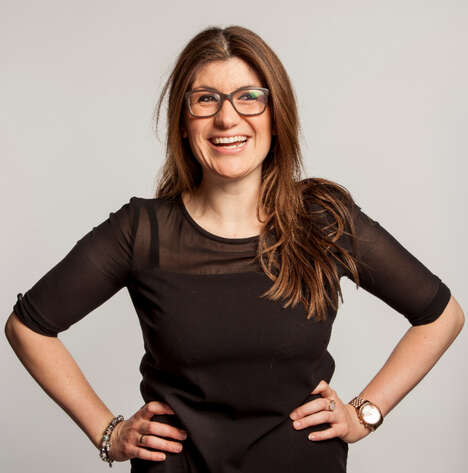 Targeting a demographic of those over 50 years old, Lumen is a dating app that launched in September 2018 in the UK. Charly Lester is a co-founder of Lumen and alongside co-founder Antoine Argouges, saw a gap in the industry and worked together to create a space for the needs of singles of that age group. The easy to use app aims to create a genuine platform that invites like-minded singles to engage in quality connections. Every single profile on Luman is verified to ensure security and authenticity.
Targeting a demographic of those over 50 years old, Lumen is a dating app that launched in September 2018 in the UK. Charly Lester is a co-founder of Lumen and alongside co-founder Antoine Argouges, saw a gap in the industry and worked together to create a space for the needs of singles of that age group. The easy to use app aims to create a genuine platform that invites like-minded singles to engage in quality connections. Every single profile on Luman is verified to ensure security and authenticity. We chatted with Charly about the inspiration behind Lumen, how it attracts its users, some challenges the app faced, and what she thinks the future of the dating industry looks like.
Can you tell us about Lumen and what inspired you to launch it?
Antoine Argouges, my co-founder, used to work at Badoo and Bumble and had noticed how many people over 50 were trying to use their apps. He was at Bumble and at Badoo. We were all in Magic Lab, which is one big dating group. When we first started out, we got seed investment from the owner of Magic Lab, and he's now also taken us in-house. So, we share a lot of tech with Bumble. Antoine had worked with them as their head of revenue and had noticed that over 50s were really wanting to date on apps. So he approached me, he'd already got the funding agreed on the provider. I'd worked in the dating space as a dating expert for probably about five years. I wrote a blog that went viral while I was working in banking -- a dating blog that got picked up by The Guardian. I ended up working at The Guardian as their dating editor. And then I worked at Time Out Group, and I was the global head of dating for Time Out. I learned some really cool stuff in the dating space, and then I launched my first business, which was industry awards for dating.
So for four years, I had been literally trialing every dating app insight, studying experts, matchmakers and really working out what was good about them, what wasn't so good, from a consumer’s perspective. So I was pretty much ready to leave the dating space. Antoine approached me but the idea and was like, "Do you want to come in as the Co-Founder and CMO?" I think, honestly, it wouldn't have been too many ideas because I've kind of heard them all, especially running the awards, there were always new dating apps appearing. Whereas, when he said I want to do something for over 50s I was like, yes, because as a dating expert, the longer I worked in the dating industry, the more questions friends would send me about dating. Honestly, the most common question I would be asked would be by friends who are in their early 30s, whose parents either had been divorced or widowed, saying, "Which app or site would you recommend?" And every time I would be like, I just don't have any recommendations for you because I knew that over 50s we're having such a miserable time, either trying to use millennial apps, and there was either no one on there or they couldn't be honest about their age. Or on the more generic sites, a lot of women were complaining that they got overlooked by men because the men are trying to date younger. So, women in their 50s and 60s are either getting hit on by men in their 80s or just not being hit on by anyone. So, I definitely knew that there was a need and I knew that this age group really wanted to be dating. So, when Antoine suggested it I was like, "Yes, count me in." We started working on Lumen in June of last year and launched in September, now we’re in about seven countries worldwide. We've got over 1.5 million members. So it's growing really, really quickly. We've had three weddings already, which is really cool.
What were some of the tactics of attracting users to use Lumen?
I think it was interesting when we first started out, people would assume, okay, no one creates tech products for 50-year-olds. Maybe you should go down alternative streams. And there was some difference. I think influencer marketing, for example, is huge for millennials -- it doesn't work for over 50s. If you look at the influencers on Instagram, they're more followed by 20-year-olds. So, there's absolutely no point in us paying someone like Iris Apfel because everyone that's following her is not in our target audience. I mean, the stuff that works well for other businesses, things like Facebook marketing, they work just as well for us. Over 50s are really prevalent on Facebook, so it's not like social media is a complete no for us. And then I think in terms of where we've really built our brand, we are massively pro-age of anti-ageism. So, if you look at advertising and the media in general, it's really rare that you see people in their 50s and their 60s depicted anywhere.
When people tend to create brands for over 50s they will use pictures of 70 and 80-year-olds and they'll normally be targeted at retirement age. So, it would be like people in a hammock on a beach, and it would be an insurance policy or something. There are very stereotypical products for that age group. Whereas, actually, there's a massive difference between an 80-year-old and a 50-year-old. It would be like trying to depict an 18-year-old with a picture of a 35-year-old. Right? And that's our target audience. Our target audience really is 50 to 65, and the age group that does use their phones, just like people in their 30s and their 40s. They use smartphones and these apps. So, our goal has been to really speak out about the absence of this generation in advertising.
So we've done some really kind of forceful advertising. We had one, which was the Naked campaign -- it has people holding up signs, and the tagline is, "Because over 50 should never be made to feel invisible." Because I know that you shouldn't have to strip down naked and hold campaign placards to get seen. We did one a couple of weeks ago, wherein England, and then we'll be replicating it in our other territories. Our most recent tagline is, "50 is just the start." We're showcasing people over 50 who do really cool stuff that you wouldn't think. There’s a lady who is 87 and a skydiver, another lady in the campaign is the oldest Ironman in the UK, we’re trying to shake up the stereotypes about aging. For me, the whole premise of Lumen is not just about dating. If you look at far more than what they've done for female empowerment, if we can do that for anti-ageism, I think that would be amazing. It's kind of, I suppose, a bigger cause for us. We're just really trying to shine a light on this generation and kind of really try to change and challenge ageism. I think that's been how we've tried to spread our message, aside from just normal marketing channels.
What were some of the challenges of targeting a demographic of over 50 on an online platform?
The main challenge was that no one really has done it before. I can't think of any other tech products that have been designed specifically for this audience. There was a lot of trial and error, and especially when it comes to marketing and how we can reach them. I think we've tried stuff, some of the more typical advertising methods that people may be used 20, 25 years ago. Things like magazine efforts, just to actually see, does this work with this age group? And in reality, I think people in their 50s behave more like people in their 30s than you would actually imagine. And there's an element of aspiration too, so a classic example, I would say that more of our users probably read Marie Claire than they do Woman&Home, which is a publication that's aimed at 50 and 60-year-olds. Actually, the average reader is probably 40s or 50s. So it's kind of this, we live in a world where our expectations are looking to the aspirational styles, and sometimes that's your younger self. So, sometimes targeting younger platforms does actually work for us, which I think is quite interesting.
How does Lumen ensure that users' identities are safe and secure whilst using the app?
Over 50s are the most targeted by scammers and catfish, so we try to protect them as best we can, by photo-verifying every single member. Upon signing up for the app, each member is asked to take a selfie, which is used to cross-reference against your profile images. Lumen is the only mainstream dating app to insist on this. We also encourage members to upload 6 different photos of themselves and to take time to write their profiles, to help with the integrity of profiles. Safety for our users is of the utmost importance so users are also easily able to block and report users for inappropriate behavior.
How do you think the online dating space will grow in the next 10 years? What do you think the industry will look like?
The last few years have been really interesting because there was so much innovation maybe five years ago, and then I think people have tried to push the boundaries further and further. Everyone wants to be a contender for Gen X. I've gone to events and people have been matched on their pheromones, or they've been matched on the sound of their voice, and all of these things. Whereas, actually, when it comes down to it, I still think human interaction and attraction is such a key part of dating. I don't think we're going to see massive changes in that. The dating apps that exist are based around human behavior and I think that they're based around the way that we actually want to meet people.
The changes we're going to see are, perhaps, more and more increasing niches as online dating becomes more and more prevalent. The more people you've got, the more you can slim down those audiences into smaller groups. For example, let's say I'm a triathlete, I would like to meet someone who is sporty. I would much rather date on a dating site or an app where everyone is 40, so I don't even need to check that box and filter people down. I mean everyone has their niche areas and I think if you look at things like veganism for example. There are certain things that people are really important to people. This is true for things like religion. If you look at apps like Christian Mingle, the way that people feel about their religion, it actually affects other aspects of their lifestyle. Whether they drink alcohol and what food they eat. I think there's definitely going to be more and more of a rise in niches. We've seen niche apps appearing, but I think you need critical mass in numbers. The more people that come to online dating, the larger the audience, the more you can divide that up.
So I think that's one way it's going. I mean I definitely think our entire audience, if you think about it, in 10 years' time, when I'll be 46. In 10 years time, a completely different generation of people who will be over 50, and people in their 40s at the moment use apps on a daily basis. I would say that you know the app usage and smartphone usage for the over 40s is probably 95% in most modern wealthy countries. I guess my job is to make sure that we're not like Myspace to Facebook. There's going to be more players entering this over 50s market. We're all getting older, and so there'll need to be more and more products too, in 15 years' time, you'll have people that were probably Tinder's earliest adopters, who might even be over 50. So, actually, that market will be getting older and no one wants to lose them in the next 10 years. I think it's just making sure that we were not the trailblazers that everyone forgets, that we stay the main player.
References: lumenapp
Featured Articles
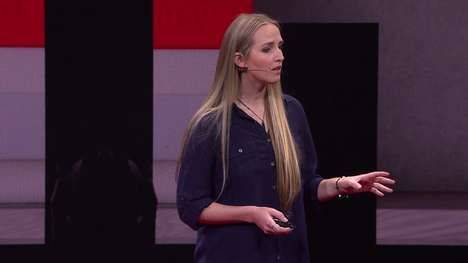
Discovering the Origin of Life
Tara Djokic's Discovery Suggests an Alternative Evolution of Life

Drone Delivery Pilot Programs
Wing Drones Will Deliver for Fedex and Walgreens in a Trial Program
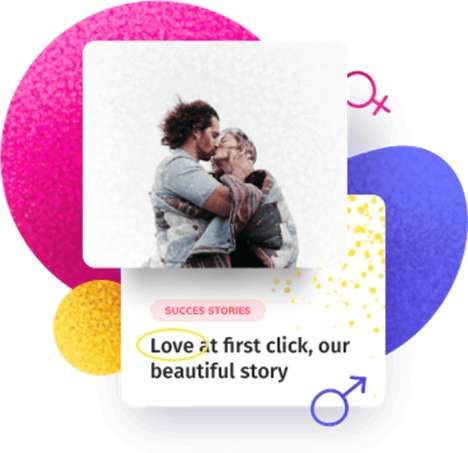
Smart Matchmaking Platforms
Seeko is a New Dating Platfrom Created to Match Users Requests
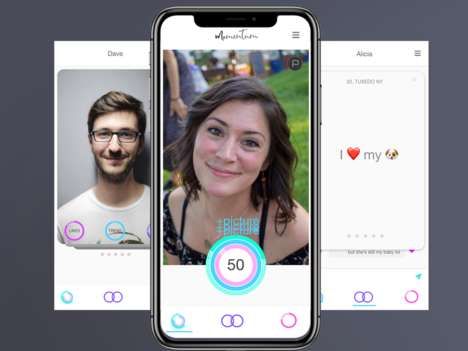
Profile-Free Dating Apps
The 'Momentum' Dating App Requires Users to Unlock Information
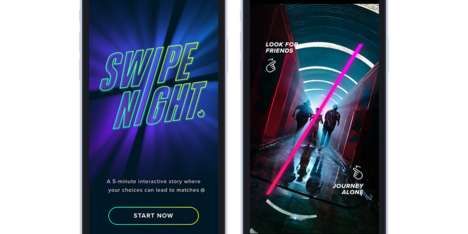
Gamified Dating Experiences
Swipe Night by Tinder is an Interactive Adventure for Dating App Users
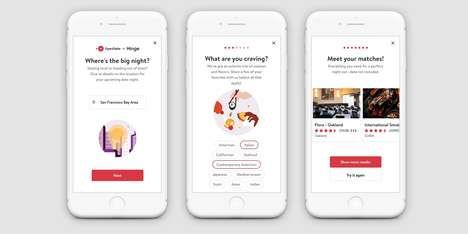
Matchmaking Restaurant Bookings
Hinge & OpenTable are Helping Dating App Users Pick Date Spots
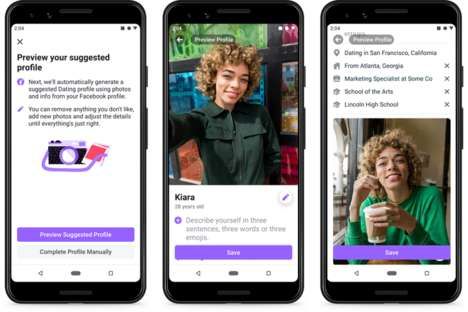
Cross Platform Dating Apps
Facebook Dating Launched in the US and will have Instagram Integration

QSR Dating Simulators
KFC's "Most Delicious" Dating Sim Lets Players Woo Colonel Sanders
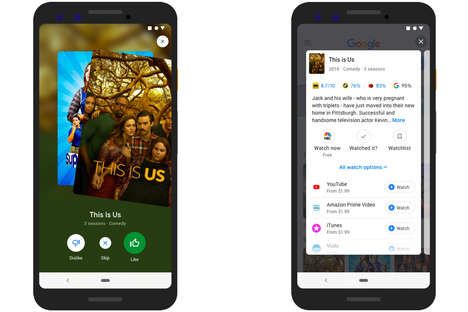
Film-Finding Swiping
Google Added Movie Swipes in Its Search Engine to Find Movies for Users